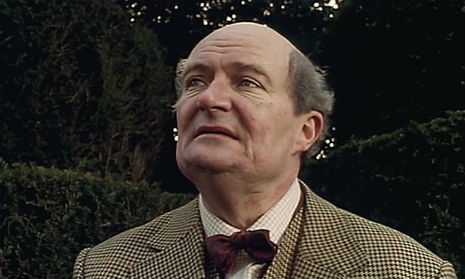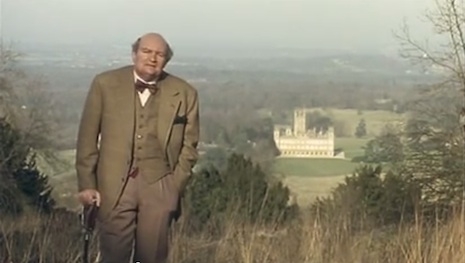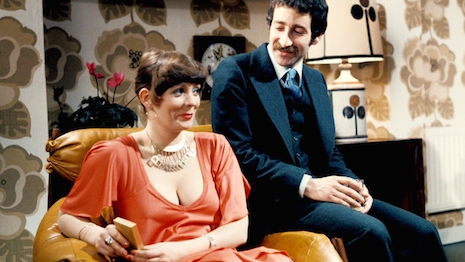
Louis CK seems to have an inordinate appetite for risk, and his remarkable TV series Horace and Pete, a self-financed, ad-free project Louis uploaded to his website with zero fanfare from the end of January to early April, is a noble attempt to introduce a little fiber into the diet of the American television consumer.
Having put his FXX show Louie on hiatus for a time and with a new contract ready to be signed at that same network, Louis developed an appetite for a TV project that just could not possibly appear on FXX—or anywhere else in the current TV landscape, for that matter. So Louis developed Horace and Pete, a grim, uncompromising 10-episode filmed tragedy of sorts that wouldn’t feel out of place on New York’s Barrow Street. Set in a bar that has seen better days, Horace and Pete was to feature bracing racism, characters that were stubbornly difficult to warm up to, and a dogged insistence on forging its own very stagelike rhythms.
If you haven’t seen the show, it’s worth paying for an episode or two at Louie’s website to get a notion of just how bracing Horace and Pete is. The show features a lengthy roster of America’s top TV actors (Alan Alda, Edie Falco, Steve Buscemi, Jessica Lange) doing some of their best and most serious work in quite some time.
It’s well known that Louis CK put himself in a bit of a financial hole with the Horace and Pete project—such are the ramifications of dispensing with advertising—but CK will probably be OK. The guy seems to function best without a safety net, and he knows it.
At the end of every show, Louis stuck the names Mike Leigh and Annie Baker in his terse list of thank-yous. Baker recently won the Pulitzer for play The Flick and actually assisted with Horace and Pete, but Mike Leigh’s role was more broadly inspirational.
As Louis recently explained on Marc Maron’s WTF? podcast, the whole idea for Horace and Pete came when Louis happened to see a televised version of Leigh’s jaw-dropping 1977 evisceration of suburban banality, one of the classics of British drama of the 1970s, a play called Abigail’s Party.
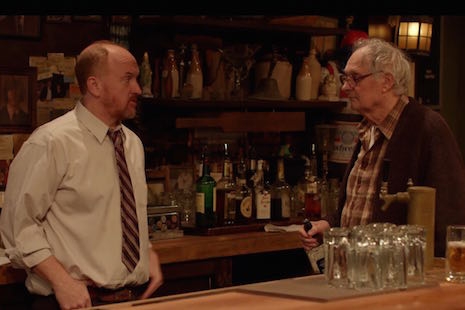
Horace and Pete is a long and tangled story centering on a bar that has been in existence for 100 years—Abigail’s Party is far more direct, depicting a single disastrous gathering for drinks in some bland suburb of London. Here’s Louis on WTF? explaining how the play sparked his creativity in such fruitful ways (this starts about 14:30 in; I’ve edited out a few superfluous comments for clarity):
I watched a thing called Abigail’s Party. ... Michael Leigh, the filmmaker from England, amazing filmmaker. Largely an improvisational filmmaker. ... like Secrets and Lies, incredible movies. Even Mr. Turner, the more recent one that nobody gave a shit about. ... Naked.
So he was a playwright in the 1970s. ... He wrote a play called Abigail’s Party, and all it is is about four people in the suburbs of London or wherever in England. They’re neighbors, don’t know each other, and they have drinks. Two hours of one scene—four people having drinks. ...
They did a TV version of the play, and this was 1973, and it looked like All in the Family—any show that was shooting back then, Maude or something? ... It looked like a sitcom in that it was shot with multi-camera, you can tell there was somebody live-switching the cameras, and you have four characters talking. ... No audience. That was the thing, and it was funny! I was laughing out loud, and there’s silence. But it’s not silence, it’s a sound stage, there’s a living feeling to it. ...
So when I watched that, I was like, “This doesn’t exist in the American TV diet. It doesn’t exist anywhere.”
And Louis set out to rectify that, post-haste. As he says later, Horace and Pete was to be a “hybrid” in that it would be “episodic like television, but the medium feels like a play, and yet also like a sitcom, in that it will look robust ... multi-cameras, a decent set.”
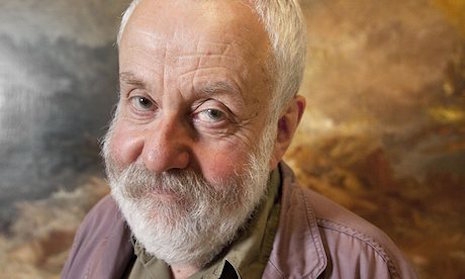
Mike Leigh
Mike Leigh premiered Abigail’s Party in April 1977, and in November of the same year—two cheers for government-funded television—a recording of the play appeared on the BBC TV program Play for Today. The stage play and the TV play had the same cast, so both centered around a remarkable performance in the key character of Bev, played by the brilliant actress Alison Steadman, who also happens to have been Leigh’s wife at the time (she has appeared in several of his films; the couple got divorced in 2001).
Continues after the jump…






